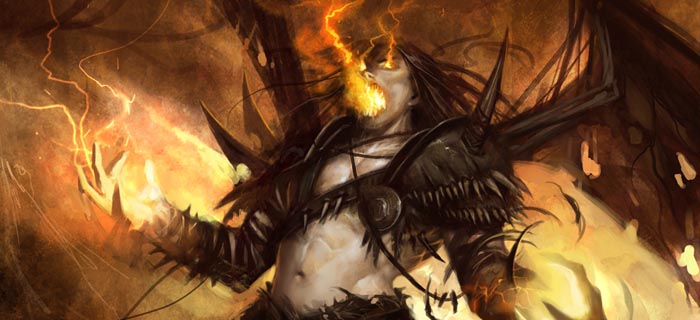Adaptation through Fire: From Newbie to Pro
One of the best things about video games, I think, is their variety. I don’t just mean by genre or style of play, or even platform. I’m talking about the whole kit-and-caboodle here. While some skills do transfer between titles, genres, and even between console and PC, there’s always a learning curve. And it’s that curve that allows sites like TopTierTactics to exist.
Players don’t always want to learn everything cold. Sometimes, but not every time. We at T3 do some of the legwork for you, bringing our experience and knowledge to the table for you to pick through and use as you see fit. There is some things we cannot give you, however: our reflexes, our mastery of the sticks/mouse and keyboard, our intrinsic map knowledge. These things you must, and I say again must, learn for yourself.
Mastery comes with pain
When dealing with any sort of environment where you must pit yourself against other players, know this. There will always be someone better than you. This is no more true than the first time you pick up a particular game with a competitive side to it. You can have reaction time bordering on superhuman; hand-eye coordination akin to a god’s; a history with your control scheme that dates back generations. Your first foray into unfamiliar territory will be painful.
The length of time in which you get your face pushed in can vary, of course. If you stay in-genre, on-one-platform, similar-styles-of-play, your time spent catching up will be minimal. For the majority of us, we need our behinds smacked over and over again. We need sites like T3 to save us a few whacks, and we need the intent and the will to power through the hard times until we’ve mastered our favorite title.
I don’t think that’s a bad thing, either. Knock it up to the whole “He should suffer too” mentality, or take it deeper, expand it out. When you as a player must face insurmountable challenges, and you don’t just curl up and die, something amazing happens.
You get better.
The pros: a road once traveled
I need constant reminding that the pro players are human. You watch them at their best and they do the impossible. Even on a mediocre day what they do seems far out of reach. Then they fumble, and you think, “I’d do that.” And that’s the key. You, me, we’d do that. We’d make that error a hundred times out of a hundred, because we’re the n00bs, right?
Yes and no. I can guarantee the hypothetical blunder presented here happened a hundred and one times to the pro in question, but there’s something they chose to do that most people wouldn’t. They didn’t get mad or belittle themselves. Instead, they chose to learn.
They learned how their mistake affected that particular situation, how their enemies reacted, how they reacted, how it might have affected the match. They took all of this and filed it away, because — and if you see a pattern here, good — they knew they’d see it again. It might happen once more in all the years they spend in the competitive arena, it might happen again in the very next match. What separates the top tier players from the pretenders is their ability to adapt based on previous failure, but do it quicker and more efficiently than everyone else.
The best against the best
Watching professional gamers go up against each other is always enlightening. I can look at their measurable skills: accuracy, movement efficiency, map knowledge, basic player psychology. More often than not, if I gave an overall score for both sides, I’d probably see a difference of only a few points, maybe a little more than, say, ten for an unbalanced match. And this factor answers my own questions of, “If both teams are, essentially equal, why does one win?” and “Why are there so many rounds in a competitive game?”
The answer to the first is an extension of the answer to the second. The initial few rounds are a part of what I’ll call the feeler period. Both teams, being equal, need time to understand what they’re up against. Starting score deadlocks are a necessary consequence of the feeler period. Neither team has a distinct advantage over the other, and so both attempt various tried and true strategies to see which are deciphered and which remain effective. For those moments where one team instantly dominates the other, the reason is probably just a skill imbalance or an initial offensive on a complacent team.
The team that pulls away, either at the start or after a few rounds is most likely the one with the better analytical skills. Through sparring, the winners will have come to understand how their opponents approached various situations, how they dealt with failure and how they compensated for mistakes. In other words, the winning team adapted in just such a way as to be a perfect counter to their enemy. Nothing the losing team did worked, because at that point they’d already lost.
What I’ve not mentioned yet are those teams that are truly equal in all respects, adaptiveness and skill included. These matches are the ones to watch, because the outcome is uncertain all the way through. In cases like these, the victory or defeat comes down to one or two players over a very short timespan. It’s at that point that adaptivity is measured on an individual level, and the player best suited for the given situation will bring home the gold.







